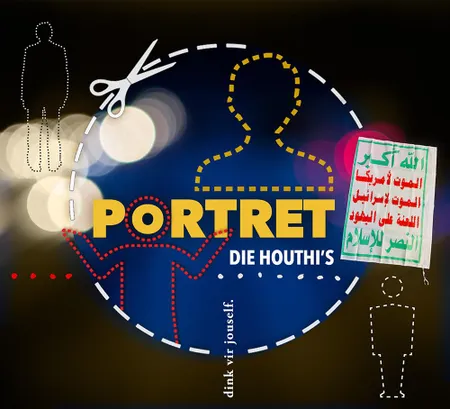THE Houthis are a dominant clan in the northwest of Yemen, comprising more than a third of the country's population. They are Zaydis, a subgroup of Shia Islam.
The Houthi movement call themselves Ansar Allah (partisans of Allah), and their armed forces Ansarullah (the party of Allah).
After the death of the Prophet Mohammed in 632 AD, one group, later known as the Shia, believed his successor must be a blood relative, while another group, later called the Sunnis, believed any worthy follower of the Prophet could become the leader. Other differences later further divided the two Muslim groups and placed them in conflict.
Iran is the heart of Shia Islam and Saudi Arabia is at the centre of Sunni Islam.
Lees hierdie artikel in Afrikaans:
The Zaydis differ from other Shia Muslims because they believe the spiritual leader Zayd, the great-grandson of Mohammed's nephew and son-in-law Ali, rather than Zayd's brother, Mohammed al Baqir, is the imam who will one day return as the Mahdi (a kind of messiah) to usher in an era of justice.
The Zaydi imamate ruled Yemen for a thousand years and was only overthrown in 1962. In the 1980s, the leaders of the Houthi clan began mobilising a movement based on Zaydi traditions and started fighting against the central government of Yemen, supported by Saudi Arabia, in the early 2000s.
A prominent Zaydi imam, Hussein Abdreddin al Houthi, accused the government of Yemen in the 1990s of being a partner of America and Israel. President Ali Abudullah Saleh cut off his funding, leading to six uprisings against the government.
Al Houthi was shot dead by government soldiers in 2004. His brother, Abdul Malik al Houthi, is now the leader.
In 2010, the Houthis signed a ceasefire agreement with the government but their conflict resumed a year later with the outbreak of the Arab Spring. Tens of thousands of people have since died in the civil war.
In 2014, the Houthis took over the capital, Sana'a, and within two years they controlled the entire north of Yemen.
The armed conflict between Saudi Arabia and the Houthis has been ongoing since 2009, and in 2015, Saudi Arabia and the United Arab Emirates (UAE) launched air strikes on Houthi targets. The conflict intensified in 2017 when the Houthis claimed responsibility for a missile attack near the Saudi capital, Riyadh, which the Saudis and Americans blamed on Iran. The conflict between the Houthis and Saudis, as well as the UAE, escalated thereafter.
Since 2014, Iran has openly declared its support for the Houthis' struggle, seeing the group as part of the Islamic Awakening.
In the final days of Donald Trump's administration, the US declared the Houthis an international terrorist group but President Joe Biden backtracked shortly afterwards, fearing a devastating impact on already dire humanitarian conditions in Yemen.
After further attacks on ships in the Red Sea, the Biden administration reinstated the declaration last month.
In response to Hamas's attack on October 7 last year, Israel began bombing Gaza, killing tens of thousands of Palestinians. In protest and solidarity with the Palestinians, the Houthis started firing missiles and drones from their bases in the north of Yemen at ships in the Red Sea. The shipping route along Yemen's coastline connects European ports with Asia via the Suez Canal.
The Tehran government denies supplying weapons to the Houthis but the Americans insist Iran is the only country capable of providing them with sophisticated missiles and drones.
The Shia militia in Lebanon, Hezbollah (Hizb Allāh, party of Allah), is also supported by Iran. It emerged after Israel's invasion of Lebanon in 1982 but became a broader and more powerful movement and political force as it stood up for the rights of Shia Muslims in Lebanon and defended the country against Israel. The US and other countries have declared Hezbollah an international terrorist group.
♦ VWB ♦
BE PART OF THE CONVERSATION: Go to the bottom of this page to share your opinion. We look forward to hearing from you.



To comment on this article, register (it's fast and free) or log in.
First read Vrye Weekblad's Comment Policy before commenting.